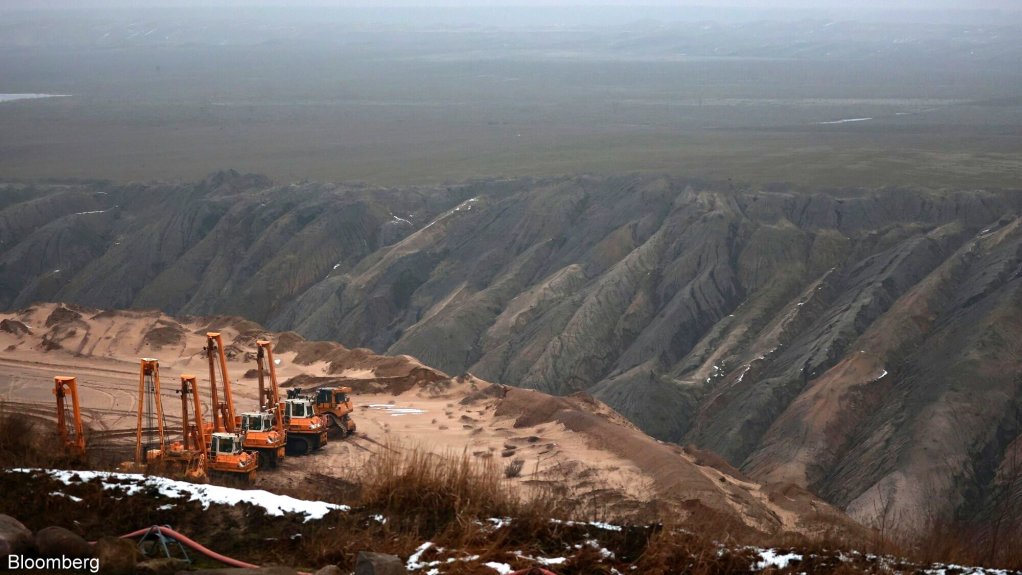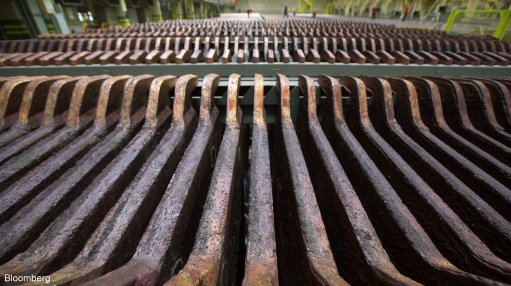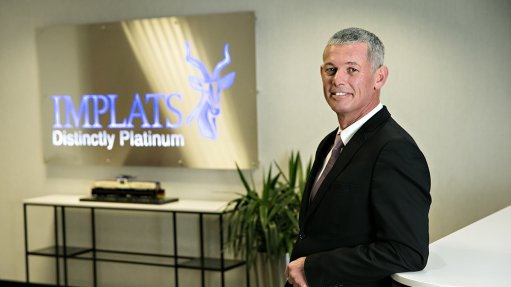German coal miners under fire for unfair edge in renewables push
Less than a year after German coal giant LEAG unveiled plans to transform its opencast mines into wind and solar farms, concerns are mounting that it and other lignite miners are exploiting an unfair advantage in the country’s race to go green.
As Europe’s largest economy aims to get 80% of its power from renewables by 2030, the government sees the former mining areas as ripe for development and unencumbered by the local protests and glacial approval process that stifles most new green projects. For LEAG and other lignite miners such as RWE AG, it’s a relatively quick way to secure their business well into a coal-free future.
When LEAG chief executive officer Thorsten Kramer announced his €10-billion ($11-billion) investment plan to become the nation’s green powerhouse in October, he described the company’s post-mining land assets as “gold dust.” Since then, the company has started construction on Germany’s largest floating solar plant in a lignite mine that’s being flooded, and last week got the go-ahead to build 17 wind turbines in a former pit, according to LEAG owner EPH, the Czech energy group.
The pace of LEAG’s approvals and the scale of investment is ringing alarm bells with smaller green developers as well as local governments in eastern Germany, where the country’s opencast lignite mines are located. The potential conflict was heightened Thursday, when German economy minister Robert Habeck assured LEAG of his “full political support” in a visit to the company’s Jaenschwalde power plant.
“The designation of LEAG areas is problematic,” said Martin Maslaton, a regional representative for onshore wind industry group BWE. “Such considerations are relevant under antitrust law.”
It’s a sentiment echoed in the states of Saxony and Brandenburg in eastern Germany, where LEAG has its largest operations. “We need a diversity of players in the energy transition,” according to Gerd Lippold, Saxony’s deputy energy minister.
CHAOTIC REUNIFICATION
An even thornier issue is whether the miners have the right to make such a wholesale transformation. In former communist East Germany, land was forcibly expropriated, and post-Cold War restitution was often chaotic. Now, with coal being phased out, some are questioning what obligations the miners have to their lignite legacy.
“The land of many people was expropriated for coal, even against their will, for the benefit of the opencast mine operators,” said Joerg Heilmann, wind project leader at JUWI GmbH, a renewable energy plant developer. “These areas belong back in public hands after the end of their operations and subsequent rehabilitation by the operator.”
LEAG says its green plans will help attract more industry and jobs to the traditionally economically weaker east. “Every contribution is needed if Germany is to achieve its climate targets,” said Kathi Gerstner, a spokeswoman for LEAG.
That’s an important point for central government, which has already mandated the country’s 16 states to designate 2% of their land for wind energy by 2032. Saxony could have immediately met this target by giving it all to LEAG, but due to concerns over the miner’s dominance, the state pushed for an amendment that such areas can only be counted as half toward the goal.
Germany also proposed putting fast-track approval for lignite wind parks in federal law, something the mining states rejected. But even having such rights at a regional level, the states still face a dilemma: avoid a green monopoly, but risk delaying renewable targets.
In western Germany, where RWE is planning to phase out its lignite business in 2030 and invest €4-billion in renewables, opposition is more muted. That’s mainly because the areas are smaller, and also because the utility has set up wind farms with direct municipal participation.
“These cooperations increase local acceptance,” RWE spokesman Guido Steffen said.
Comments
Press Office
Announcements
What's On
Subscribe to improve your user experience...
Option 1 (equivalent of R125 a month):
Receive a weekly copy of Creamer Media's Engineering News & Mining Weekly magazine
(print copy for those in South Africa and e-magazine for those outside of South Africa)
Receive daily email newsletters
Access to full search results
Access archive of magazine back copies
Access to Projects in Progress
Access to ONE Research Report of your choice in PDF format
Option 2 (equivalent of R375 a month):
All benefits from Option 1
PLUS
Access to Creamer Media's Research Channel Africa for ALL Research Reports, in PDF format, on various industrial and mining sectors
including Electricity; Water; Energy Transition; Hydrogen; Roads, Rail and Ports; Coal; Gold; Platinum; Battery Metals; etc.
Already a subscriber?
Forgotten your password?
Receive weekly copy of Creamer Media's Engineering News & Mining Weekly magazine (print copy for those in South Africa and e-magazine for those outside of South Africa)
➕
Recieve daily email newsletters
➕
Access to full search results
➕
Access archive of magazine back copies
➕
Access to Projects in Progress
➕
Access to ONE Research Report of your choice in PDF format
RESEARCH CHANNEL AFRICA
R4500 (equivalent of R375 a month)
SUBSCRIBEAll benefits from Option 1
➕
Access to Creamer Media's Research Channel Africa for ALL Research Reports on various industrial and mining sectors, in PDF format, including on:
Electricity
➕
Water
➕
Energy Transition
➕
Hydrogen
➕
Roads, Rail and Ports
➕
Coal
➕
Gold
➕
Platinum
➕
Battery Metals
➕
etc.
Receive all benefits from Option 1 or Option 2 delivered to numerous people at your company
➕
Multiple User names and Passwords for simultaneous log-ins
➕
Intranet integration access to all in your organisation





















